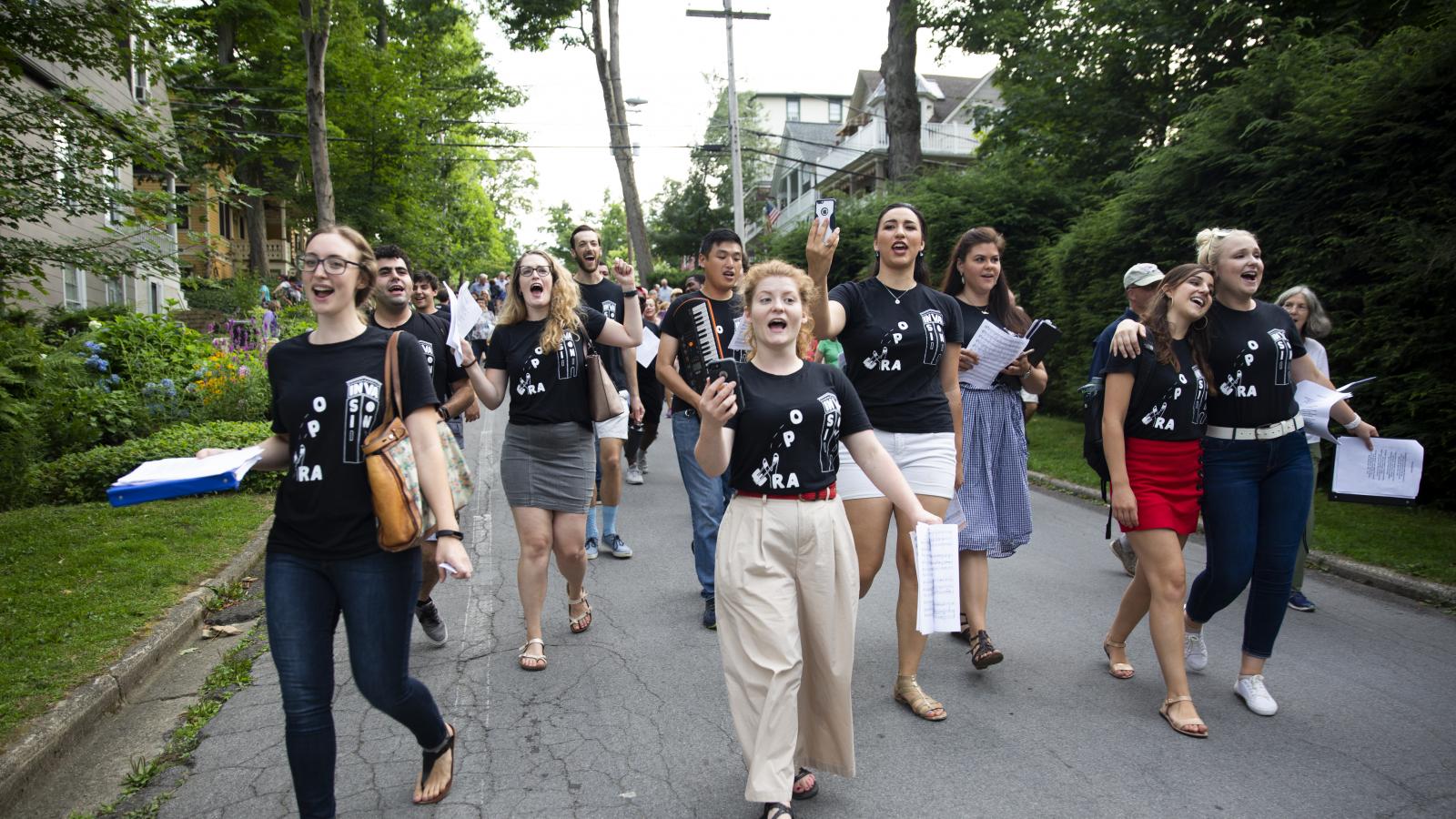Celebrating 100 Years of Women's Voices at the Chautauqua Institution

During the height of the suffrage movement, activist Susan B. Anthony frequently advocated for women’s rights from the stage of the Chautauqua Institution, one of the nation’s leading arts and intellectual centers. So to mark the centennial of the passage of the 19th amendment, which granted American women the right to vote, it seemed only fitting for the organization to honor the milestone—and one of the leading women who helped make it happen.
With support from a newly announced National Endowment for the Arts grant, the Chautauqua Institution, located in southwestern New York, will theme its weeklong summer opera festival around the suffrage movement and issues of women’s equality. Chautauqua’s two-month summer season is themed by week, and the opera festival—along with complementary lectures, book talks, and other arts performances—will form a week dedicated to “The Women’s Vote Centennial and Beyond.” The grant is part of the Arts Endowment’s support for projects celebrating the 100th anniversary of women’s suffrage.
“It was important for us to do this because it would be too easy to say, ‘It’s done; this is something that was won,’” said Steve Osgood, general and artistic director of the Chautauqua Opera Company, which manages the Institution’s opera programming. “In fact, it’s still a constant struggle for everybody to have their voice, to have their vote, to have their rights, period.”
For the festival, the company will feature three mainstage performances: The Mother of Us All by Gertrude Stein and Virgil Thomson, which recounts the life of Susan B. Anthony; Thumbprint by Kamala Sankaram and Susan Yankowitz, which tells the true story of Mukhtar Mai, a Pakistani woman who took her rapists to court instead of committing suicide, which was considered the traditional method of regaining her family’s honor; and Tosca by Puccini, whose heroine, Tosca, kills herself rather than leave her fate to the men who killed her lover.
“With these three pieces together, we’re looking over the course of a century at repertoire that shows women and their struggle for a voice,” said Osgood. Even Tosca, he said, while not typically thought of in terms of women’s rights, has a somewhat unique place in classical opera, where most female characters die or get married by the end of the performance. In Tosca, however, “[Tosca] does die, but it’s because she takes her own life on her own terms,” Osgood said. “As far as strong women, with a strong voices, who are in charge of their fate, she really ended up being a clear go-to.”
In addition to the opera festival, the Arts Endowment grant will also support in-school performances both for each School’s entire student body as well as one-on-one work with several classrooms in 18 schools across Chautauqua County, a rural region where roughly 18 percent of residents live below the poverty line. This is part of the Institution’s larger effort in recent years to engage directly with the region’s youth, mainly through in-school literary, music, and dance programming.
“Depending on the school that you’re talking about, we have anywhere between 55 to 75 percent of that student body needing free or reduced lunch programs,” said Tina Downey, director of the Chautauqua Fund. “That gives you an idea of the real need. Of course, in an area like ours, a lot of the arts program in those schools are very, very minimal. We’re [looking at] our programs to see what we can do to benefit the students and their families more directly.”
As part of this in-school programming, the Chautauqua Institution offers a Young Playwrights Program, which helps area students develop their own plays and scenes, which are then performed in the community. As another component of Chautauqua’s Arts Endowment grant, the Institution will hire a female opera composer-in-residence, who will create a series of short operas and musical works inspired in part by these student-created plays. The composer-in-residence’s new works will be performed at various events throughout Chautauqua’s summer season.
“For me, individuals [in Chautauqua County] having a voice expressed through opera is an immediate tie-in to the bigger theme we’re celebrating in our 2020 season,” Osgood said. “I’ve seen the looks on faces of kids when they are first brought into contact with an opera singer singing live within 5, 10, 20, feet of them. The sheer impact of the acoustic voice produced at that level is eye-opening. For that voice to then be singing their words and telling their story—it gives me chills to think about.”
Ultimately, every piece of the project circles back to the Chautauqua Institution’s central mission: to encourage us to think more expansively, speak more passionately, and to use our ideas and voices to help create a better world. “Yes, we’re celebrating the centenary of the 19th Amendment, and it is an incredible thing to mark. But it is only one step on a much, much bigger struggle,” Osgood said. “We have a role as citizens, as individuals in this world, to be continually trying to push the ball further down the field. We’re not there yet.”




